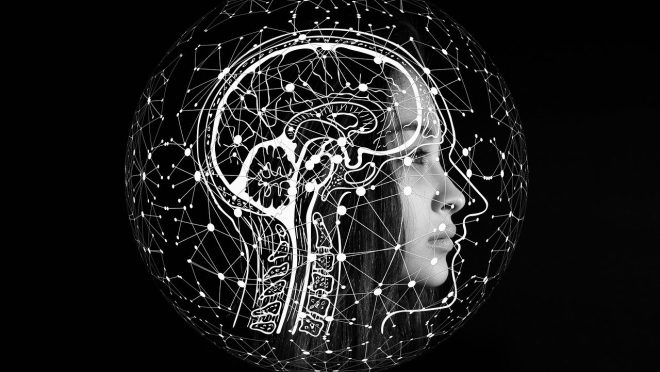Data science: Shaping the future of Bangladesh
Data science: Shaping the future of Bangladesh

In an era where decisions are increasingly driven by data, the field of data science has emerged as a transformative force, reshaping industries, revolutionising innovation, and reimagining the future.
From harnessing the potential of artificial intelligence (AI) to advancing healthcare and agriculture, data science is a beacon of progress worldwide. But what does this mean for Bangladesh, a nation on the cusp of a digital revolution?
Let us explore how data science is shaping lives globally and why it is a cornerstone of Bangladesh’s journey toward a prosperous, data-driven future.
The global impact of data science: A new era of possibility
Imagine a world where machines predict health crises before they strike, cars drive themselves through bustling city streets, and businesses know what customers want before they do.
This isn’t science fiction; it’s the reality crafted by data science. Across the globe, governments, industries, and researchers are leveraging data to solve complex problems, make smarter decisions, and enhance human experiences.
From personalised medicine to climate modelling, the impact is immense. Bangladesh is no exception; it stands to gain immensely by embracing this transformative field.
Data science in Bangladesh: Applications that matter
In Bangladesh, the story of data science is one of emergence and opportunity. While the field is still nascent, its influence is already being felt across key sectors.
Picture a farmer in rural Bangladesh receiving real-time crop health updates on his mobile phone or a bank preventing fraud through predictive analytics. These aren’t distant dreams but tangible outcomes driven by data science.
Banking and finance: Banks utilise data science to enhance customer service, assess credit risks, and combat fraud.
Telecommunications: Companies like Grameenphone analyse consumer behaviour to predict trends and tailor services.
Agriculture: Data-driven insights monitor crop health, predict yields, and provide farmers with actionable recommendations.
Healthcare: Health data analytics help track disease outbreaks and optimise resource allocation, ultimately saving lives.
As digital transformation sweeps through Bangladesh, data science is destined to become a linchpin in urban planning, public health, and e-commerce.
Nurturing data science talent: The role of universities
The rise of data science in Bangladesh owes much to its educational institutions, which are cultivating a new generation of data scientists. Among these, Daffodil International University (DIU) stands out. Offering a robust programme in data science within its Department of Software Engineering, DIU equips students with expertise in data analysis, machine learning, and practical applications.
DIU’s Data Science Lab serves as a hub of innovation, allowing students to work on projects tackling real-world challenges—from environmental monitoring to healthcare analytics. With cutting-edge computing resources and collaborative partnerships, the lab bridges academia and industry, ensuring graduates are prepared for the job market.
Other universities are also stepping up:
–United International University (UIU): Offers a Bachelor’s programme in Data Science.
–East West University (EWU): Provides a focused programme on Data Science and Analytics.
–Dhaka University (DU): Introduced an honors programme in Applied Statistics and Data Science.
–North South University (NSU): Features data science specialisations within broader curricula.
These institutions are crucial in addressing the talent gap and fostering innovation, ensuring Bangladesh remains competitive in a data-driven world.
The Data Science-AI Synergy: Unlocking New Horizons
Data science and artificial intelligence (AI) are two sides of the same coin. AI thrives on data—it’s the fuel that powers intelligent algorithms, enabling breakthroughs in natural language processing, image recognition, and predictive analytics.
For example, autonomous vehicles, like those developed by Tesla, rely on data scientists to analyze and optimize vast datasets from millions of cars.
In Bangladesh, this synergy has transformative potential. From improving urban infrastructure to addressing rural challenges, data science and AI can drive efficiency, enhance public services, and unlock new economic opportunities. By investing in these interconnected fields, Bangladesh can chart a path toward sustainable development and technological leadership.
A bright future: Careers and economic growth
The career prospects in data science are nothing short of extraordinary. In Bangladesh, industries such as e-commerce, telecommunications, and banking are rapidly adopting data-driven strategies. Platforms like Daraz use data analytics to forecast trends and enhance user experiences, while telecom companies optimise services through consumer insights.
Globally, data science and AI are among the fastest-growing job sectors. Roles like data analyst, machine learning engineer, and data engineer are in high demand, offering lucrative opportunities for skilled professionals. As Bangladesh’s digital ecosystem matures, the demand for local talent will only intensify, creating a vibrant job market.
Bangladesh’s path to a data-driven future
The journey ahead is both promising and challenging. To realize the full potential of data science, Bangladesh must continue investing in education, research, and infrastructure. Collaboration between universities, industries, and government agencies will be key to fostering innovation and addressing societal needs.
Bangladesh has the opportunity to position itself as a regional leader in data science and analytics. By building a skilled workforce, encouraging industry partnerships, and promoting real-world applications, the nation can drive economic growth and technological progress. As the global data science landscape evolves, Bangladesh stands poised to make its mark, shaping a brighter, data-driven future for all.
From farmers to financiers, data science is changing lives—one algorithm at a time. In Bangladesh, this transformation is just beginning. With determination and investment, the country can harness the power of data to unlock its full potential, charting a path of innovation and prosperity that inspires the world.
The author is an assistant professor of Department of Software Engineering at Daffodil International University.


